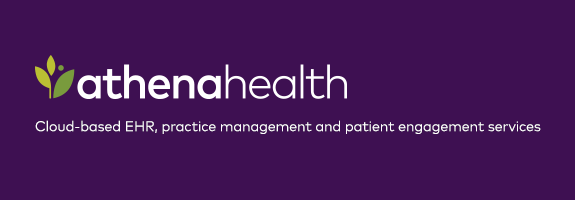Can Digitization Save Healthcare? Athenahealth Thinks It Can

This cloud-based health services start-up believes it can "unbreak healthcare." Is Athenahealth the digital solution that the healthcare industry has been waiting for?
At Athenahealth, the customer promise is boldly captured by the company motto: “it’s time to unbreak healthcare.” Originally founded in 1997 as a women’s health center, Athenahealth has since transformed into a cloud-based healthcare services platform serving 80,000 providers and generating over $750 million in revenue. [1] Currently valued at between $4-5 billion, the company claims that its network of services will revolutionize healthcare by streamlining physician workstreams and allowing them to focus on what really matters – the patient. [2] [3]
The fundamental problem that Athenahealth seeks to address is a familiar one – healthcare in the US is plagued by problems of high cost and low quality. Despite spending on healthcare rising to 17.5% of GDP, the US continues to lag behind other nations on many quality metrics. [4] Additionally, the healthcare industry has earned a reputation for being notoriously slow to adopt technological innovation in its daily operations – many practices are still reliant on paper documentation for charting, billing, and other functions. Athenahealth argues that it can play a major role in “unbreaking” this terribly broken system through its wide variety of products and services, which include revenue cycle management, patient engagement, population health management tools, in addition to electronic health record (EHR) software. The underlying logic behind this claim? Company loyalists, or self-described “athenistas” believe that by increasing the efficiency of billing, charting, and other support services, practices can capture more revenue and allow their physicians to spend more time providing high quality care. [5]
The Athenahealth network – “letting doctors be doctors”
While developing an EHR is no longer a unique value proposition, Athenahealth believes that its cloud-based platform offers a distinct advantage. Rather than provide individual versions of software that live on a healthcare practice’s local drives, Athenahealth offers its providers access to a single (but customizable) cloud-based application. The benefits of the cloud-based structure are numerous. For example, any improvements made to the software are instantly accessible to all users. Furthermore, it allows a constant stream of data to flow from healthcare practice to Athenahealth analysis centers and vice versa. A team of Athenahealth employees are tasked with monitoring how practices are utilizing the software, poised to identify inefficiencies and areas for improvement.

Digitalization of revenue cycle management, or the end-to-end process of tracking revenue from appointment booking, to provision of care, to filing insurance claims and billing patients, has also proved immensely valuable. Athenahealth employs a large cohort of back office support staff who receive and scan the large volume of faxes directed at providers in the Athenahealth network every day; the soft copies are then incorporated into the digital system. Providers on Athenahealth have enjoyed an 6% increase in collections and 32% reduction in days accounts receivable on average. [6]
Other sources of differentiation include its payment model. Unlike major competitors in the electronic health record space, Athenahealth doesn’t require a large upfront investment but rather charges a percentage of revenue collected by the healthcare practice. [7] Additionally, Athenahealth houses an innovation hub aptly named “More Disruption Please” or MDP. The MDP network includes a venture accelerator that provides health tech start-ups with seed funding, as well as the Athenahealth Marketplace, which offers healthcare practices access to additional clinical tools developed by external partners that integrate with the Athenahealth platform. [8]
Other features of the Athenahealth platform are less unique but clearly illustrate how digitalization has transformed physician workflows and patient engagement. Athenahealth offers a mobile application for its electronic health record system, allowing physicians to review patient charts on the go. Its patient engagement tool incorporates the now commonplace patient portal feature, which provides patients with the ability to message physicians and check their lab results.
Next steps for Athenahealth
Can one start-up lead the way in “unbreaking” healthcare? While Athenahealth has developed a best-in-class platform for streamlining documentation and revenue cycle management, more can and should be done to shift the focus back towards patient outcomes. Many of the metrics cited on the Athenahealth website describe increases in revenue and cost savings rather than improved patient care. Athenahealth’s cloud-based platform and in-house staff of analysts are powerful tools that can be leveraged to improve actual care delivery. For example, Athenahealth could utilize EHR data to help practices identify their highest risk patients and develop specific care plans for management. Dedicated programs could be developed to monitor and communicate with patients with chronic health issues to enhance preventative care. Only by setting explicit goals around improvement in health outcomes can Athenahealth truly make the claim of supporting patient-centered care. Additionally, Athenahealth must develop capabilities to support the needs of large hospitals and academic medical centers in order to remain competitive in the EHR space. (784 words)
[1] Athenahealth, “Results and Insights,” [http://www.Athenahealth.com/network-data-insights], accessed November 2016.
[2] Yahoo Finance, “Athenahealth, Inc,” [https://finance.yahoo.com/quote/ATHN/key-statistics?ltr=1], accessed November 2016.
[3] Forbes, “Most Innovative Growth Companies,” May 2016, [http://www.forbes.com/companies/Athenahealth/], accessed November 2016.
[4] Centers for Medicare & Medicaid Services, “National Health Expenditure Data,” [https://www.cms.gov/research-statistics-data-and-systems/statistics-trends-and-reports/nationalhealthexpenddata/nationalhealthaccountshistorical.html], accessed November 2016.
[5] Jonathan Bush, “The CEO of Athenahealth on the role of anger in starting new businesses,” Harvard Business Review, December 2015, [https://hbr.org/2015/12/the-ceo-of-Athenahealth-on-the-role-of-anger-in-starting-new-businesses], accessed November 2016.
[6] Athenahealth, “Results and Insights,” [http://www.Athenahealth.com/network-data-insights], accessed November 2016.
[7] Myles Udland, “This Man Says He’s Buildilng the ‘Healthcare Internet’ and He’s Started A Huge Controvery on Wall Street” Business Insider, July 2014, [http://www.businessinsider.com/how-Athenahealth-became-a-wall-street-debate-2014-7], accessed November 2016.
[8] Jen Wieczner, “Is Athenahealth CEO Jonathan Bush in a bubble?” Fortune, December 2014, [http://fortune.com/2014/12/29/Athenahealth-ceo-jonathan-bush-bubble/], accessed November 2016.



Very interesting post! As the EHR space is increasingly competitive, is Athenahealth working to make their broader suite of services compatible with other EHR platforms? With systems like EPIC already capturing a large market share in the space, how can Athena continue to innovate in order to maintain a competitive advantage? As mentioned above, Athenahealth allows patients and doctors to access information and communicate “on-the-go”. With they go the next step and provide the ability to meet virtually with a doctor? This may be a second step to maintain differentiation. Additionally, can Athenahealth partner with wearable medical devices that communicate directly with the cloud based platform? Do they currently include feedback to physicians understand accuracy of diagnoses to help drive improvement of outcomes? I expect this to be a dynamic space with continuous innovation as time progresses!
Thanks for a very informative article, Ginger! Athenahealth is often cited as one of the most innovative companies in healthcare, so it was great to learn more about their model and unique initiatives like MDP.
While being cloud-based is clearly beneficial for the reasons you mention above, I would think there is also a higher risk for security breach. The mobile application for physicians to review EHRs on the go seems like that would further increase the security risk. With something as sensitive as medical records and recent, high-profile hackings such as the one at Anthem last year[1], how big of a concern is this to Athenahealth and its supporters? How does Athenahealth ensure that its systems are truly safe, and how does it reassure customers of this?
[1] Nsikan Akpan, “Has health care hacking become an epidemic?”, PBS, 23 March 2016, http://www.pbs.org/newshour/updates/has-health-care-hacking-become-an-epidemic/, accessed November 2016.
Gyjiang – interesting thoughts about opportunities for Athenahealth going forward. I think Athenahealth has shown itself to be a leader purely by acknowledging that the current system is terribly broken and needs help at every level. For small offices, I can imagine that it is difficult and time consuming to take care of scheduling, paperwork and billing, particularly when there are many regulations that make doctors and their teams very cautious about new technology or making any adjustments to their current system. A you mentioned, a strength for Athenahealth is its commitment to “letting doctors be doctors.” I was surprised to hear that they receive and digitize their clients faxes. This seems like a simple task, but it removes a source of administrative complexity that could lead to lower quality patient care.
I would love to see if Athenahealth could capitalize on the idea you mentioned at the end of your post. With the tremendous amount of data they collect, I agree that Athenahealth could help identify high-risk patients and take automatic steps to flag them to doctors. Preventative care for high-risk patients offers a great opportunity to lower overall healthcare costs while simultaneously extending life spans and quality of life. I question why they have not already moved into this space.
Fascinating post! Thanks for sharing, Ginger. This is an area for which I hadn’t fully understood the potential benefits of digitalization. From friends in the medical field and my own doctors, I have heard about the burden of some of the more administrative aspects of running a medical office and how that can detract from the time and ability to focus on patient care. Athenahealth seems to be offering a strong solution.
One question I was left with is: how customizable is the cloud-based platform? It seems like depending on the size of an office, the range of services, and the specialties, the needs of the customer could change considerably. The platform needs to be generic enough to be desired by a large customer-based, but at the same time be sufficiently tailorable to individual characteristics of a business. How is Athenahealth offering customization that can appeal to a potentially very broad range of needs?
Great article putting light on disruption in the healthcare space Ginger!
I wonder how we can motivate more clinics to adopt the EHR model offered by Athenahealth and others. Are there initiatives by Medicaid and Medicare to reward institutions for switching to EHR. Surely adoption requires a lot of initial investment and training of staff – this should be subsidized by the government.
A second point is data regulation and standardization. In how far are EHR products driving standardization in medical records, is there a commonly agreed set of metrics and data points that are captured in a standard way across the US and maybe even across developed countries?
Thanks for this thought-provoking piece. It looks like Athena is doing some great things when it comes to making the healthcare process simpler through the digitization of many key tools healthcare providers use in their treatment of patients. To your point, I wonder what they can do that is more transformative in how the system works, i.e., how providers actually treat patients. While their tools are great to cut costs and increase revenue, they are likely collecting a ton of data on specific treatment areas and on specific therapies or care methods. There are likely many crucial insights that could be gathered by combing through the hoards of data that would actually help improve patient care and get us towards better care and better outcomes versus finding ways to operate within the current system.